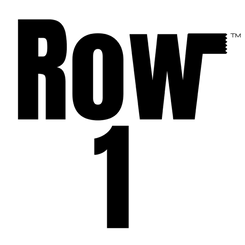The journey to find the most substantial Major League Baseball players that wore the number 14 on their uniforms starts by looking at who the Baseball Hall of Fame has in their hallowed halls. Enshrined number ones of professional baseball are:
- Eddie Collins
- Ted Lyons
- Bob Feller
- Heinie Manush
- Waite Hoyt
- Chick Hafey
- High Pockets Kelly
- Ernie Banks
- Willie Mays
- Chuck Klein
- Jim Bunning
- Larry Doby
- Rickey Henderson
- Jim Rice
- Bobby Cox
Another telling clue to find the best is to see who has the MLB number 14 retired by their respective teams. This list of retired number 14s includes:
- Ernie Banks the legendary Shortstop and First Baseman had his number 14 retired by the Chicago Cubs on August 22, 1982.
- Kent Hrbek was a standount First base player forthe Minnesota Twins who put away his number 14 with honor on August 13, 1995.
- Larry Doby the pioneer Center Fielder of the Cleveland Indians had his number retired by the club on July 3, 1994.
- Ken Boyer the fantastic hitter and Third Base player was celebrated by the St Louis Cardinals on May 20, 1984.
- Gil Hodges the logtime Gold Glove First Baseman of the New York Mets had his uniform digits reerved for only his memory on June 9, 1973.
- Jim Bunning the stud Pitcher for the Philadelphia Phillies had his number retired on April 16, 2001 by the club.
- Jim Rice the prolific Left Fielder and Designated Hitter of the Boston Red Sox had his number posted at Fenway on July 28, 2009.
- Paul Konerko the standout First base Player of the Chicago White Sox was honored with number retirement by the ball club on May 23, 2015.
- Pete Rose the hiitting machine of an Outfielder, IInfielder and even one-time Manager of the Cincinnati Reds saw his number be retired on June 26, 2016.
Larry Doby Baseball HOF Slugger
Lawrence Eugene Doby, "Larry" to the world, etched his name in baseball history as both a fearless trailblazer and a talented slugger. Born in 1923, Doby first starred in the Negro Leagues, leading the Newark Eagles to a championship in 1946. In 1947, he became the second African-American player in the Major Leagues, following Jackie Robinson, when he debuted for the Cleveland Indians.He faced the brunt of racism and hostility, but Doby persevered, batting .270 with 14 home runs in his rookie season. The next year, he hit a team-high 27 home runs and helped the Indians capture the American League pennant. Doby went on to play 13 seasons in the Majors, primarily with Cleveland, showcasing his power with 253 career home runs and finishing with a solid .283 batting average.
Beyond his statistics, Doby's legacy resonates because of his courage and leadership. He paved the way for future generations of Black players, earning induction into the Baseball Hall of Fame in 1998. After his playing days, Doby served as a scout and executive, further contributing to the game he loved. Larry Doby, the quiet giant, forever stands tall as a symbol of resilience and progress in baseball history.






